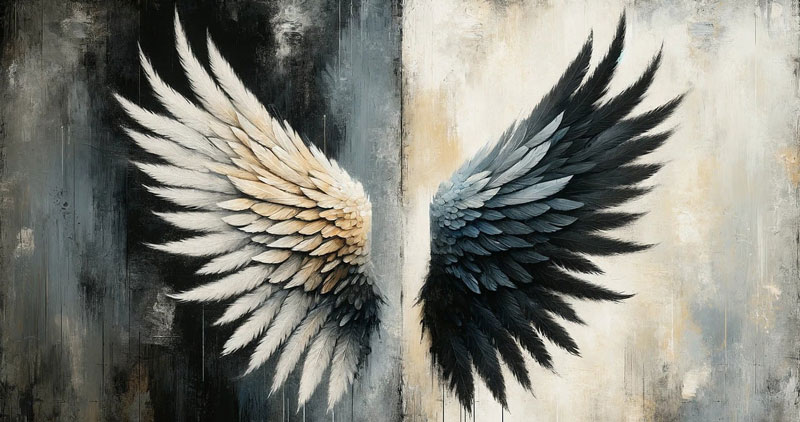Demons Unveiled: Challenging the Notion of Inherent Evil
Introduction
Demons, often cast as malevolent entities in various religious and cultural traditions, have long been associated with evil. Yet, beneath the surface of this conventional portrayal lies a nuanced perspective—one that suggests demons were once angels who chose a divergent path. This post delves into the possibility that demons may not be wholly evil, questioning the binary classification of good and evil in the realm of divine beings. Throughout many occult books, we often see them portrayed as divine.
The Origin: Angels Turned Demons
The traditional narrative tells us that demons were once heavenly angels who, for various reasons, chose to deviate from the path set by God. This perspective challenges the notion of demons as inherently evil, suggesting that their divergence from divine plans doesn’t necessarily make them wholly malevolent. It prompts us to consider whether their actions are a rebellion against a rigid celestial order rather than an embodiment of pure evil. Of course, the church would have us believe that they are one and the same, and the paradox is that to do the will of a supreme being and have free will is of no use to anyone.
The Notion of Compliance: Good vs. Evil
The idea of compliance with specific rules raises questions about the binary classification of good and evil. Can disobedience be automatically equated with inherent evil? Exploring the possibility that demons might be entities challenging the status quo, this post invites readers to reconsider preconceived notions about good and evil in the context of these enigmatic beings.
Demons and Human Interactions: Respect vs. Condemnation
Drawing parallels between human interactions and encounters with demons, we explore the notion that disrespect towards demons could contribute to a perceived malevolent response. Could showing respect, rather than condemnation, foster a different dynamic and elicit assistance from these entities? This section encourages readers to consider the impact of their own actions and attitudes when engaging with the supernatural.
Power Dynamics: Control and Obedience
Examining the notion that others, much like a divine authority, may seek to control people, we draw parallels between the desire for obedience in religious contexts and human structures of authority. This prompts reflection on whether the demonization of demons serves a purpose in controlling narratives and beliefs, both in the spiritual and earthly realms.
Perspectives on Worship and Obedience
Worship, a cornerstone of many religious practices, is explored in the context of controlling narratives and maintaining power structures. By discussing alternative perspectives on the divine and questioning the interpretations of obedience, we suggest that demons might represent a challenge to rigid systems, advocating for personal autonomy and critical thinking.
Alternative Perspectives on Demonology
Introducing alternative perspectives from various occult and esoteric traditions sheds light on how demonology is interpreted differently across cultures and belief systems. By recognizing the diversity of opinions on demons and their potential roles in spiritual or magickal practices, readers are encouraged to embrace a broader understanding of these entities. yet at the same time to tread carefully. One should respect demons just as much as angels if we ever hope to succeed through their assistance.
Demons in Folklore and Literature
Analyzing the portrayal of demons in folklore and literature, we recognize the nuanced depictions that go beyond a simplistic “evil” label. Cultural contexts shape the perception of demons, which highlights how these entities have been interpreted and reinterpreted throughout history.
The Wisdom of Questioning: Encouraging Critical Thinking
Encouraging readers to question established narratives and perspectives, we emphasize the importance of critical thinking in exploring nuanced and alternative views. By acknowledging that beliefs surrounding demons, like any belief, are subjective and open to interpretation, we empower individuals to engage with the topic with an open yet guarded mind. Once we fully accept that demons are wholly evil beings who will harm us just for the fun of it, then that is indeed what they will be to us.
Conclusion
The exploration of demons as entities with a complex origin and potential motivations challenges preconceived notions. Encouraging readers to approach the topic with an open mind and a willingness to question established beliefs, this post emphasizes the value of diverse perspectives in understanding the multifaceted nature of these often-misunderstood entities. As we unveil the layers of demonology, may we find a more nuanced and enlightened understanding of these mysterious beings.
After all, there can be no Yin without its Yang, and there can be no Yang without its Yin.

